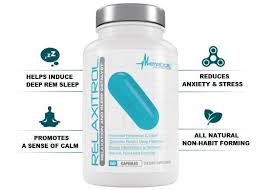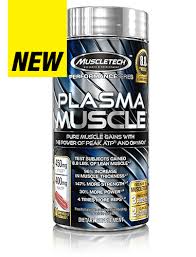Description
NutraBio L-Carnitine Tartate (500mg)
90 Vegetable Capsules
Benefits of NutraBio L-Carnitine (500mg)
- Aids transportation and conversion of fats into energy.
- Boosts energy production and enhances endurance.
- Supports fatty acid metabolism.
- Increases maximal work output and exercise tolerance.
- Supports healthy cholesterol metabolism.
- Helps improve strength and growth of muscle.
NutraBio L-Carnitine is a pharmaceutical grade amino acid that is HPLC lab tested for potency and is guaranteed to be free of harmful impurities. Each 500mg vegetable capsule contains 500mg of pure L-Carnitine Tartrate with no fillers, excipients, or additives.
Though not essential itself, L-carnitine is considered conditionally essential for many people who aren’t synthesizing as much as they need, such as those with angina or intermittent claudication. It plays a vital role in the transport of fatty acids into the mitochondria (the powerhouses of the cell) for oxidation and energy production.
Due to its fat burning role in the body, carnitine has been thought to be beneficial as a weight loss supplement and as a sports performance aid (to increase available energy and to spare glycogen). Therefore, researchers have investigated possible benefits that consuming L-carnitine could have on recovery from exercise, weight loss, and athletic performance.
L-Carnitine for Recovery
Strong evidence exists for carnitine as a recovery product. Several studies have indicated that carnitine supplementation can reduce muscle damage after exercise, even after as little as two weeks of consumption.
Both endurance and resistance exercise were utilized in the muscle damage studies, and various markers for recovery were measured, including MRI scans for muscle damage, creatine kinase (a biomarker used to measure muscle damage), and perceived soreness.
A decrease in oxidative stress was also observed with carnitine use, after both chronic and acute supplementation. The antioxidant activity could also improve recovery after strenuous exercise since exercise raises oxidative stress.
L-Carnitine for Weight Loss
Since carnitine plays such an important role in fat burning, it makes sense that people would take it for weight loss and fat loss. However, not all studies agree that carnitine promotes weight loss.
- Four weeks of carnitine supplementation at 1 gram per day significantly increased weight loss in conjunction with a weight loss diet over the diet alone in a study of 100 obese subjects.
- In another study, eight weeks of carnitine supplementation at 4 grams per day did not induce changes in total body mass, fat mass, or fat burning at rest in overweight women.
- Also, taking 2 grams of carnitine before and 2 grams during a marathon run did not increase fat burning in young, healthy men.
- However, studies in older adults and animal models have demonstrated fat loss benefits.
In all, the research suggests that carnitine can induce fat loss, but more evidence is needed to determine the precise dosage and supplementation period for fat loss in young, healthy people, and how different diets may affect the action of L-carnitine.
Performance Benefits of L-Carnitine
Employing a 6-month supplementation period, Wall and colleagues were able to induce improvements in performance.
- Work output increased 11% during a 30 minute “all-out” performance test on a bicycle.
- Skeletal muscle metabolites were tested during low-intensity and high-intensity exercise bouts to elucidate how carnitine might be working.
- After the low-intensity exercise, muscle glycogen content was 35% greater in the carnitine group, indicating that carnitine may spare glycogen for endurance athletes.
- After the high-intensity exercise, carnitine supplementation induced lower muscle lactate, which means that more carbohydrates are being burned more efficiently (aerobically), and suggests that high-intensity athletes may also have more fuel later in the competition.
Other researchers have induced performance benefits after acute carnitine supplementation using a time to exhaustion cycling test and sprints on a bicycle. However, many studies did not observe performance benefits.
- After two weeks of carnitine supplementation, no differences were found in healthy, active men during a time trial test.
- Similarly, three weeks of carnitine consumption did not improve squat and leg press.
- Taking carnitine directly before exercise did not improve marathon run time, sprint times, bench press reps to failure or bench press power.
Though some studies have not demonstrated performance benefits from L-carnitine supplementation, it is important to note that the dosage and supplementation period have not been consistent among studies, and these two factors are essential to increase carnitine in the muscle.
Who should/should not take L-Carnitine?
Athletes of all types and levels could benefit from carnitine use. Endurance athletes interested in performance enhancement will need to ensure that they are taking an adequate amount of carnitine daily for an extended period of time. High-intensity athletes and endurance athletes alike would benefit from the antioxidant activity and the reduction in muscle damage.
Side Effects
There are no known side effects with carnitine supplementation. Individuals supplemented with 4 grams for 24 weeks with no medical issues. Some people have noticed a fishy body odor when consuming 3 grams per day.
Dosage
Though some studies have tested doses as large as 4.5 grams, most studies agree that the effective dose is 1-2 grams per day. This dose has been demonstrated to benefit recovery, fat burning, and exercise performance.
For carnitine supplementation to exert maximal benefit for athletes, it must get into muscle tissue. Though studies have demonstrated increases in circulating carnitine, muscle carnitine content has often remained unaltered at shorter supplementation periods.
In one study, muscle carnitine content increased 21% after consumption of 2g of L-carnitine L-tartrate with carbohydrate daily for 24 weeks, suggesting that a long period of supplementation may be necessary to increase muscle carnitine and thereby maximize benefit for athletes.
Bottom on L-Carnitine
Carnitine is effective at improving recovery after both endurance and resistance exercise by lowering oxidative stress and muscle damage.
Carnitine also increases fat burning and may increase fat loss over time, but more research is needed in a variety of populations.
Improvements in metabolism occurred at low and high-intensity endurance exercise, such that a wide range of athletes could benefit from carnitine supplementation; however, prolonged periods of supplementation should be employed to see these benefits.
Pronunciation: ![]() Suggested Use: As a dietary supplement take 1 capsule 2 to 3 times daily on an empty stomach, or as directed by your physician.WARNING: NOT INTENDED FOR USE BY PERSONS UNDER THE AGE OF 18. KEEP OUT OF THE REACH OF CHILDREN. If you are pregnant, breast feeding, have known medical conditions (including kidney or liver disease) or are taking prescription or OTC medication(s) consult with your health care practitioner before using this product.
Suggested Use: As a dietary supplement take 1 capsule 2 to 3 times daily on an empty stomach, or as directed by your physician.WARNING: NOT INTENDED FOR USE BY PERSONS UNDER THE AGE OF 18. KEEP OUT OF THE REACH OF CHILDREN. If you are pregnant, breast feeding, have known medical conditions (including kidney or liver disease) or are taking prescription or OTC medication(s) consult with your health care practitioner before using this product.
NutraBio Labs has a “No Compromise” commitment to producing the purest, cleanest, and most effective supplements on the market. All of our products are manufactured in-house in our FDA-inspected, GMP certified facility in New Jersey. NutraBio only uses the most superior ingredients and all ingredients are tested by us and a third party lab to ensure 99.98% purity or greater. Our products all include fully transparent labels featuring clinical doses of the highest quality ingredients available. To ensure our customers of our commitment to product quality, we launched a new
†These statements have not been evaluated by the Food and Drug Administration. This product is not intended to diagnose, treat, cure or prevent any disease.
Research
- Volek JS, Kraemer WJ, Rubin MR, Gomez AL, Ratamess NA, Gaynor P: L-Carnitine L-tartrate supplementation favorably affects markers of recovery from exercise stress. Am J Physiol Endocrinol Metab 2002;282:E474-482.
- Parandak K, Arazi H, Khoshkhahesh F, Nakhostin-Roohi B: The effect of two-week L-carnitine supplementation on exercise -induced oxidative stress and muscle damage. Asian J Sports Med 2014;5:123-128.
- Ho JY, Kraemer WJ, Volek JS, Fragala MS, Thomas GA, Dunn-Lewis C, Coday M, Hakkinen K, Maresh CM: l-Carnitine l-tartrate supplementation favorably affects biochemical markers of recovery from physical exertion in middle-aged men and women. Metabolism 2010;59:1190-1199.
- Bloomer RJ, Farney TM, Trepanowski JF, McCarthy CG, Canale RE, Schilling BK: Comparison of pre-workout nitric oxide stimulating dietary supplements on skeletal muscle oxygen saturation, blood nitrate/nitrite, lipid peroxidation, and upper body exercise performance in resistance trained men. J Int Soc Sports Nutr 2010;7:16.
- Lurz R, Fischer R: The Global Word, Inc. Job#: L1919 Lonza Inc. 8/3/00.
- Villani RG, Gannon J, Self M, Rich PA: L-Carnitine supplementation combined with aerobic training does not promote weight loss in moderately obese women. Int J Sport Nutr Exerc Metab 2000;10:199-207.
- Colombani P, Wenk C, Kunz I, Krahenbuhl S, Kuhnt M, Arnold M, Frey-Rindova P, Frey W, Langhans W: Effects of L-carnitine supplementation on physical performance and energy metabolism of endurance-trained athletes: a double-blind crossover field study. Eur J Appl Physiol Occup Physiol 1996;73:434-439.
- Center SA, Warner KL, Randolph JF, Sunvold GD, Vickers JR: Influence of dietary supplementation with (L)-carnitine on metabolic rate, fatty acid oxidation, body condition, and weight loss in overweight cats. Am J Vet Res 2012;73:1002-1015.
- Malaguarnera M, Cammalleri L, Gargante MP, Vacante M, Colonna V, Motta M: L-Carnitine treatment reduces severity of physical and mental fatigue and increases cognitive functions in centenarians: a randomized and controlled clinical trial. Am J Clin Nutr 2007;86:1738-1744.
- Pistone G, Marino A, Leotta C, Dell’Arte S, Finocchiaro G, Malaguarnera M: Levocarnitine administration in elderly subjects with rapid muscle fatigue: effect on body composition, lipid profile and fatigue. Drugs Aging 2003;20:761-767.
- Wall BT, Stephens FB, Constantin-Teodosiu D, Marimuthu K, Macdonald IA, Greenhaff PL: Chronic oral ingestion of L-carnitine and carbohydrate increases muscle carnitine content and alters muscle fuel metabolism during exercise in humans. J Physiol 2011;589:963-973.
- Cha YS, Choi SK, Suh H, Lee SN, Cho D, Li K: Effects of carnitine coingested caffeine on carnitine metabolism and endurance capacity in athletes. J Nutr Sci Vitaminol (Tokyo) 2001;47:378-384.
- Jacobs PL, Goldstein ER, Blackburn W, Orem I, Hughes JJ: Glycine propionyl-L-carnitine produces enhanced anaerobic work capacity with reduced lactate accumulation in resistance trained males. J Int Soc Sports Nutr 2009;6:9.
- Naclerio F, Larumbe-Zabala E, Cooper R, Allgrove J, Earnest CP: A multi-ingredient containing carbohydrate, proteins L-glutamine and L-carnitine attenuates fatigue perception with no effect on performance, muscle damage or immunity in soccer players. PLoS One 2015;10:e0125188.
- Barnett C, Costill DL, Vukovich MD, Cole KJ, Goodpaster BH, Trappe SW, Fink WJ: Effect of L-carnitine supplementation on muscle and blood carnitine content and lactate accumulation during high-intensity sprint cycling. Int J Sport Nutr 1994;4:280-288.
- Smith WA, Fry AC, Tschume LC, Bloomer RJ: Effect of glycine propionyl-L-carnitine on aerobic and anaerobic exercise performance. Int J Sport Nutr Exerc Metab 2008;18:19-36.







Reviews
There are no reviews yet.